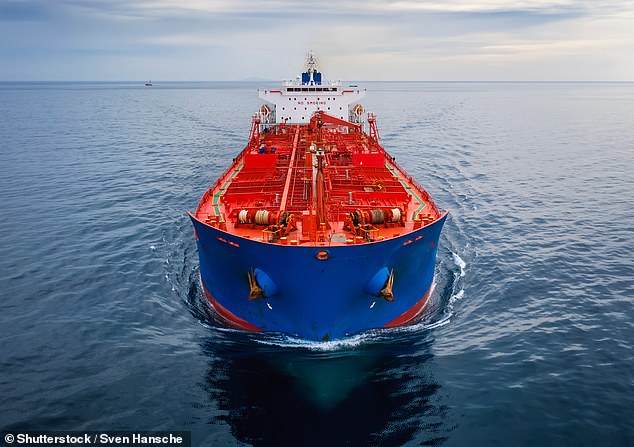<!–
<!–
<!– <!–
<!–
<!–
<!–
Russia has spent almost £2bn building a “dark fleet” of tankers that circumvent sanctions to ship banned oil around the world, according to a senior official.
The scale of the sanctions breach, which experts say involves up to 1,800 vessels whose ownership is opaque, is revealed on the second anniversary of Moscow’s invasion of Ukraine that led to international restrictions on Russian trade.
But Western sanctions – including a cap of $60 per barrel on Russian oil – have been criticized as ineffective and failing to stem the flow of cash fueling the Russian war machine.
The price cap – well below the market rate of $80 a barrel – was designed to limit the Kremlin’s huge revenue from oil exports without causing another rise in global energy costs. But Russia continues to export as much oil as it did two years ago.
It has circumvented sanctions by creating a parallel maritime structure that transports Russian oil through complex routes.

‘Dark fleet’: Scale of sanctions non-compliance revealed, which experts say affects up to 1,800 vessels whose ownership is opaque
The shadow fleet is believed to have a large number of vessels over 15 years old, the age at which major oil companies would normally retire them due to wear and tear.
“Otherwise they would have been looking for scrap metal,” said Mike Salthouse of marine insurer NorthStandard.
The size of this parallel fleet has “grown significantly”, added Olga Dimitrescu of the UK’s Office of Financial Sanctions Implementation (OFSI).
“But that comes at a significant cost to Russia,” which she says amounts to almost £2bn. “It’s $2.25 billion that Putin’s regime spends on oil tankers, not tanks,” she added.
Experts say the price cap has not worked because it has incentivized black market trading of Russian oil. Former spy Christopher Steele believes secondary sanctions should be considered because countries such as China and Turkey import cheap Russian oil, refine it and export it at “huge profits” to the UK, he told ITV’s Peston programme.
Labor MP and anti-corruption campaigner Dame Margaret Hodge has urged a tougher approach to sanctions following the suspicious death of Russian opposition leader Alexei Navalny in a Siberian prison.
In a letter to Foreign Secretary Lord Cameron, he noted that the UK marine insurance industry underwrites a third of all Russian oil that was transported by sea between the implementation of sanctions and November 2023.
“Surprisingly, some of this oil was sold at prices above the price limit, in clear violation of sanctions,” he said.
Cameron last week unveiled a new round of sanctions targeting oil traders and energy projects.

